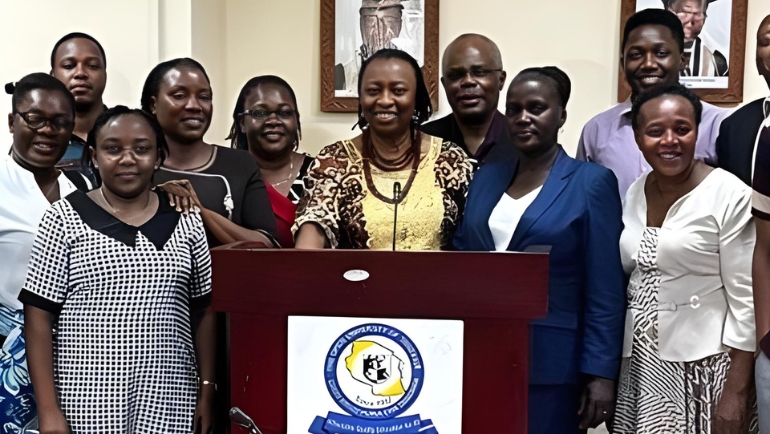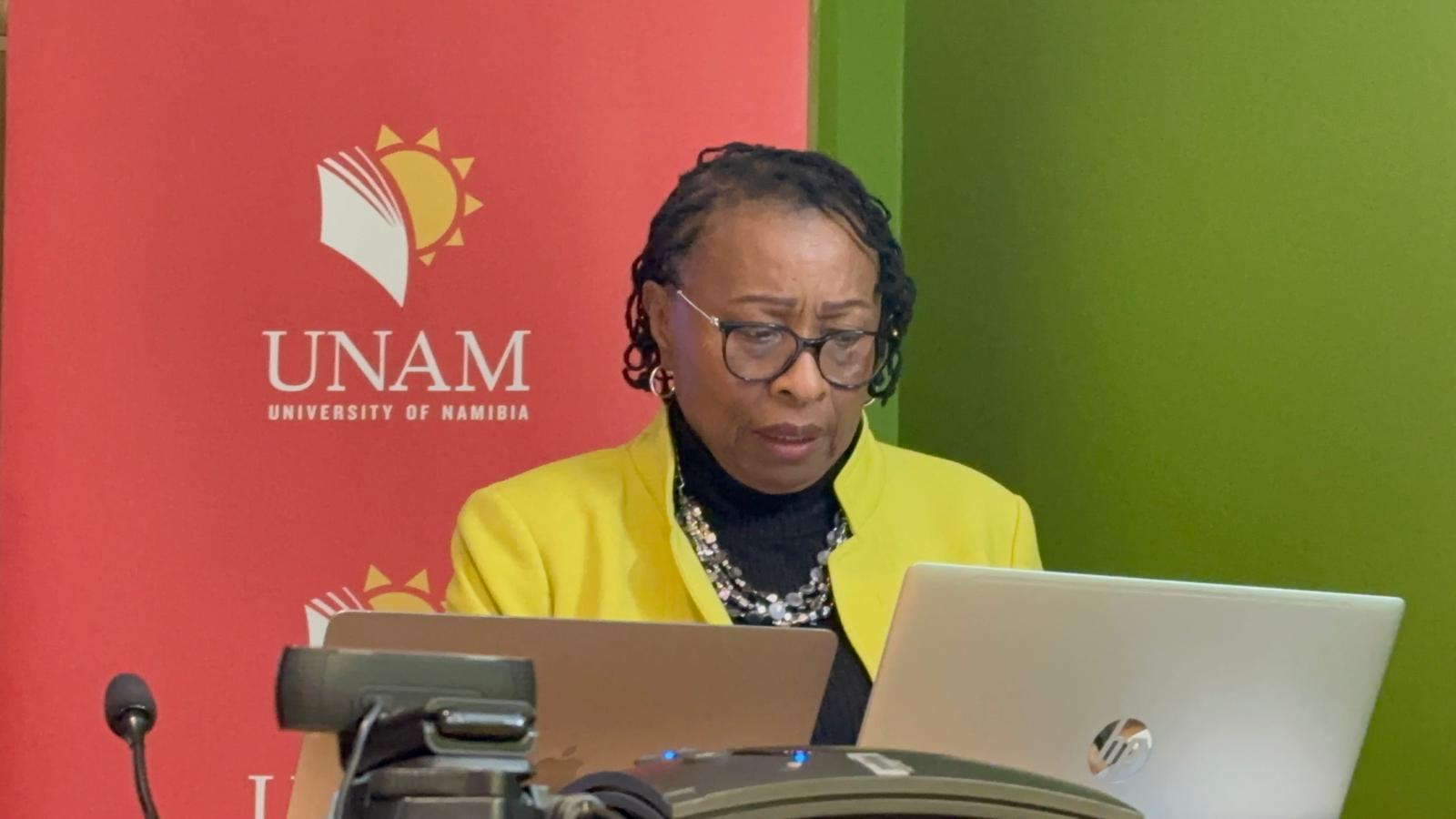Fulbright Scholar Award takes Professor Daphne Ntiri to University of Namibia
Although she grew up in West Africa, Distinguished Service Professor Daphne Ntiri says her year in Namibia as a Fulbright Scholar has been unlike anything she could have imagined, from the enthusiasm of students and faculty to the beauty found in the sun-baked desert marked by stunning mountain ranges, sand dunes, magical sundowners and age-old rhythms of nature.

“This has been the most wonderful/amazing international experience by far,” she says, while Zooming from her three-bedroom self-contained flat, ornate with an enchanting cactus garden in Windhoek, the nation’s capital.
“I’ve been to about 50% of African countries, but there has been no continuity and I’m not as connected as I should be because I have never stayed in one that long. I have been a professor serving mostly French-speaking countries and I didn’t know if I wanted to serve in another one, so a colleague suggested I look at the University of Namibia.”
A native of Sierra Leone, Ntiri’s first Fulbright Scholar award came in 2015 when she taught at the University of Ouagadougou in Burkina Faso, a francophone country. A faculty member in the Department of African American Studies at Wayne State, her scholarship spans interconnected areas of African American studies, adult education/literacy, gender empowerment and Third World studies.

She arrived in Namibia in January. While there, she has shared her experiences on adult literacy and its impact on workforce development.
“My research focus was going to be on adult literacy and women in the Zambezi region and that expanded to include discussions about a shift towards a knowledge-based society in light of the high levels of globalization, unprecedented changes in information and communication technology and getting students prepared for the global market competition in the 21st century. Students need skills-based education.
“I’ve been working on policies and teaching in the graduate program, overseeing masters students and taking part in the doctoral program orientation. I have shared my scholarship by giving ongoing seminars as part of the “Enlightenment Luncheon Forum” series; additionally, I developed new credit-bearing courses on successful grants writing strategies and nonprofit sector studies for both the UNAM faculty and the community.”
The Fulbright Exchange Scholar Program is the U.S. Department of State's international exchange flagship program and is highly competitive. It provides funding for faculty and academic staff to teach, conduct research and carry out professional projects in 135 countries each year.
“It has been extraordinary,” Ntiri says. “I had the awesome privilege to give seminars on adult learning lessons from the USA at the University of Botswana, Department of Adult Education from July to August. Fulbright offered another opportunity to travel based on my expertise so I gave seminars on adult literacy research and its intersection with gender in African countries at three institutions in Tanzania, namely The Open University of Tanzania, Dodoma University and The Adult Education Institute. For years, Tanzania had the highest adult literacy rate in Africa so I was very interested in going there and witnessing the adult literacy realities.”
During her first month in-country, she began organizing the first International Education Conference (EDUCON). By the middle of September, it was a fait accompli. EDUCON 2024 welcomed over 400 delegates, including 21 international university presenters (43% of whom were from various U.S. institutions and others from the Southern Africa Development Community). This was due in large part to her network of international connections.
Once she returns, she hopes to create a faculty and student exchange between the University of Namibia and Wayne State. Until then, she’ll bring her Fulbright experience back into the classroom and the community.
“The goodwill of the people I will take back with me,” she says. “The people are just very peaceful—they don’t talk in high tones. They are soft-spoken. I am taking civility back with me.
“I’m happy in the morning—it all ties into what I’m doing with this Fulbright Scholar experience. I encourage other faculty to make use of the Fulbright opportunity to share knowledge and to learn something new. It is amazing what this kind of opportunity can do for American faculty who stand a chance to influence the world at large.”
To learn more about the Fulbright U.S. Scholar Program and how the Office of Fellowships can assist faculty with the application process, visit oip.wayne.edu/fellowships/fulbright-faculty or email fellowships@wayne.edu.